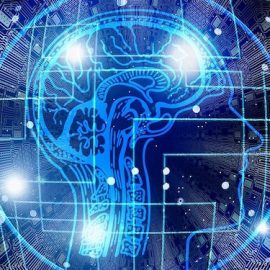
What drives our everyday decisions and behaviors? Why do we often feel like everyone is watching our every move?
In You Are Not So Smart, David McRaney reveals how our sense of self-importance shapes our perceptions and choices. He explores two key ways this manifests: believing we’re the center of attention and making decisions to protect our ego.
Keep reading to discover why you might be overthinking what others think of you and learn practical ways to make better decisions.
Our Sense of Self-Importance
McRaney explains that, instead of using logic, we often make assumptions and decisions based on our sense of self-importance. There are two ways we do this: First, we believe ourselves to be the center of attention. Second, we make decisions in order to protect our ego.
We Think We’re The Center of Attention
McRaney explains that we have outsized views of our importance because of human nature—we’re the center of our own universe, so we believe ourselves to be more important to others than we actually are. This phenomenon is called the spotlight effect. For example, you’re likely to think those around will notice the small stain on your shirt or your bad mood. In reality, people are unlikely to notice you, let alone the stain or your mood—they’re focused on themselves, just as you’re focused on you.
(Shortform note: A 2016 study put forward a theory called the invisibility cloak illusion, which seems to contradict the spotlight effect. The study found that we underestimate how closely others pay attention to us, but we pay close attention to them. In other words, we think we’re invisible to others, but they actually notice many small details about us such as the way we talk or smile, the color of our eyes, and so on. While this seems to contradict the spotlight effect, researchers explain that the two effects coincide—it’s true people are paying more attention to you than you think, but they’re not noticing the things you’re self-conscious about, such as the stain on your shirt.)
According to McRaney, this self-centered thinking causes unnecessary stress about being judged and prevents you from paying attention to your environment. For example, you spend the night feeling bad about the stain that no one notices when you could be having fun. Likewise, your focus on the stain prevents you from noticing things such as how happy your friends are to see you—something you should be grateful for. McRaney suggests that when you start to feel self-conscious about others’ opinions of you, remember that strangers are paying about as much attention to you as you are to them—you’re too busy thinking about yourself to think about them, and so are they.
(Shortform note: The spotlight effect is detrimental because it causes self-consciousness. As McRaney says, this can prevent you from being present; it can also cause mental health issues such as social anxiety, self-isolation, and depression. Further, since this effect is occurring in the vacuum of your mind, it can be hard to break the cycle on your own. Therefore, if you still struggle to overcome the spotlight effect after following McRaney’s advice, try getting distance from your perspectives by asking others for help. Ask people you trust for feedback on how noticeable the aspects you’re concerned about are—they’ll be able to give you an accurate outside perspective.)
We Strive to Protect Our Ego
McRaney explains that our sense of self-importance often causes us to make poor choices when we attempt to protect our ego. We tend to base our decisions on how important the result will make us feel rather than practicality. This phenomenon is called the ultimatum game. For example, if you go to a new restaurant and your waiter offers you a voucher for a free drink upon your next visit, you’re happy and will return. If you’re a long-time customer and receive the same offer, you might see this as insulting—it’s not much compared to the amount of money you’ve spent there so you don’t return due to this perceived slight. Logically, a free drink is better than a drink at cost, but your sense of importance drives you to reject it.
(Shortform note: In The Power of Now, Eckhart Tolle explains that the part of our ego that causes us to get upset when we feel slighted is called the pain-body. The pain-body accumulates and feeds off negative emotions. So when you’re in a situation that triggers something painful—for example, hearing a passing comment from your parents that reminds you of how they made you feel as though you were inferior to your brother—your pain-body might take control and cause you to be sullen or antagonistic, further feeding into and strengthening your pain-body. Tolle says this leads to a vicious cycle: The bigger your pain-body gets, the more negative emotions you’ll experience moving forward.)
McRaney explains that we engage in this thought error because it’s our nature to want to gain status—in tribal times, our survival hinged on our resources and status in the group. However, it’s detrimental in modern times because it causes us to miss out on opportunities. To overcome ego-serving thinking and make more practical decisions, McRaney suggests logically evaluating the pros and cons of your opportunities.
| The Effects of Ego-Driven Behavior and How to Overcome Them In A New Earth, Tolle explains that our desire to gain resources and superiority has even farther-reaching consequences than what McRaney discusses. On a larger scale, this desire results in greed, pollution, depletion of resources, violence, and polarization (such as ideological war). On an individual level, it results in inauthentic relationships and recurring negative emotions. The key to overcoming our ego-driven behavior and these effects, according to Tolle, is to detach from your pain-body and live in the present moment. For example, to detach from your pain-body (and follow McRaney’s advice to base decisions on logic), learn to identify when it’s controlling your emotions—when you get upset over things such as a lack of respect or attention, recognize that these thoughts and emotions aren’t coming from you; they’re coming from your pain-body. Once you acknowledge that these feelings aren’t you, you can separate yourself from them. |






